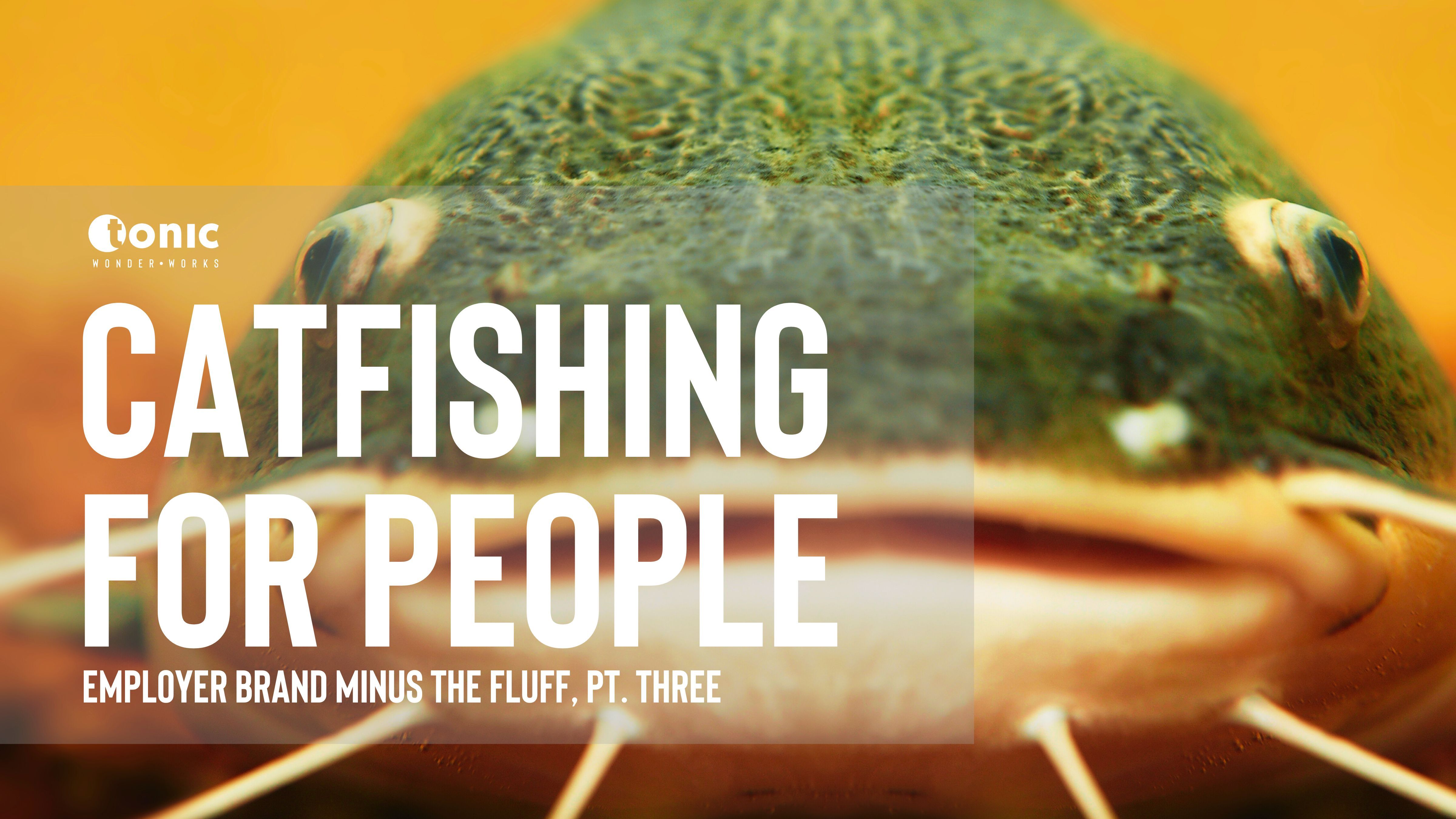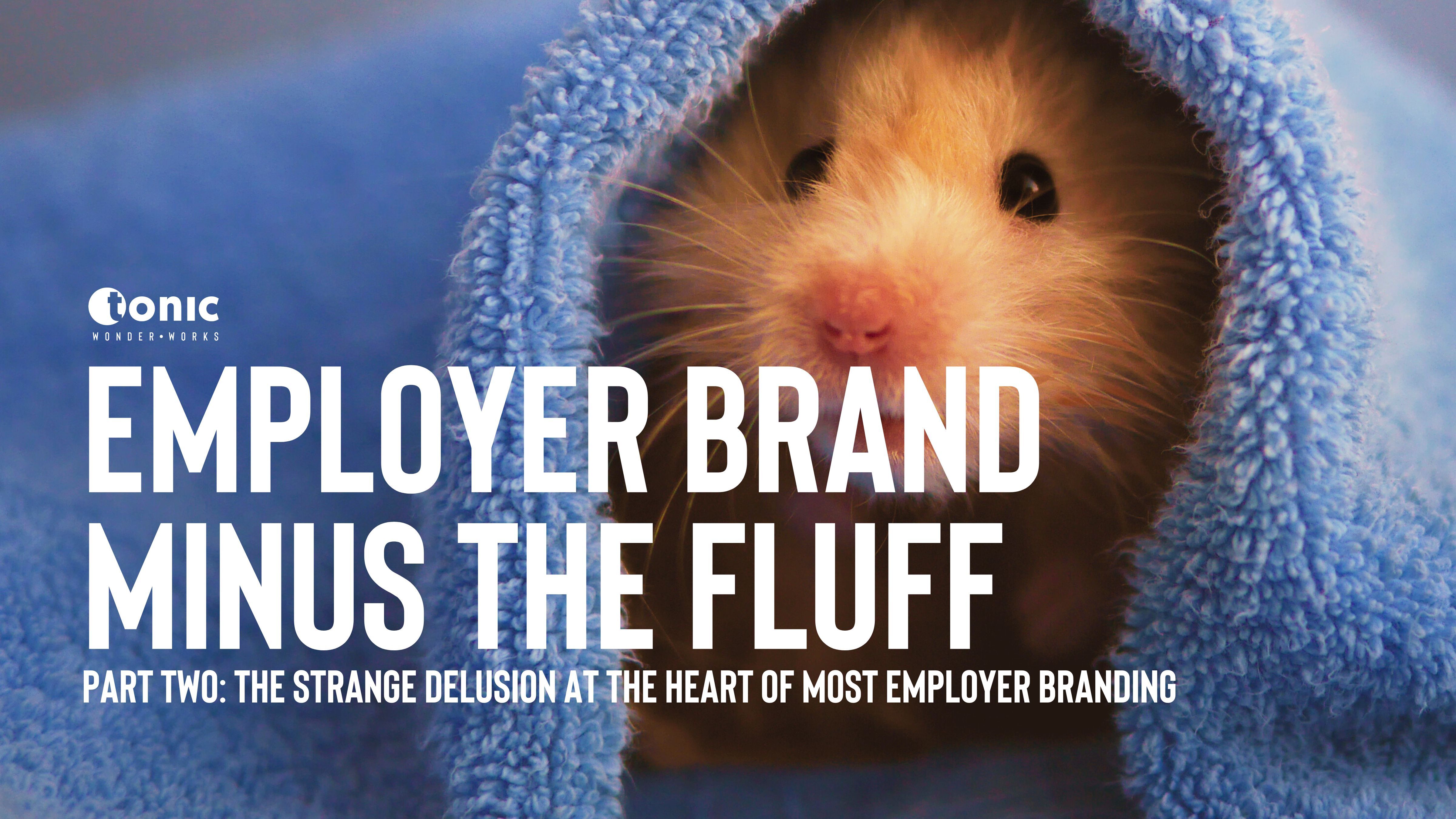Recruitment communications has for some time had a bit of a self-confidence issue. This often leads us to grab hold of things done in the consumer sector and assume that if they’re doing it, it must be an amazing idea - and we should copy.
Often this is harmless, but in some situations we shouldn’t copy them - sometimes because it’s simply not a very good idea (cf Gen Z theory) but sometimes because there are actually very good reasons why it shouldn’t be done in employment marketing. Personas are the best example I can give here.
The basic idea of personas in marketing is to use data to create profiles of people who buy - or could buy - your product or service, in order that you can then design marketing and user experiences optimised to suit them. Different agencies use different criteria, but usually they feature demographics, media habits, consumer habits and so on.
When it comes to recruitment, this opens up an enormous problem that isn’t really a problem when selling products, and that’s when we admit that by “persona” we mean stereotype.
Let’s use an example. I'm an employer and I’m going to create a persona to target engineering students in the UK - about which I can get some fantastically detailed stats from the Higher Education Statistics Agency. So let’s start with that demographics question. A quick visit to hesa.ac.uk tells me that just over 80% of these students are male, so first of all I’ll fill in the box that… oh dear. This is a bit of a problem isn’t it? I have a target to increase female representation on our scheme. You choose. Do I:
So does this mean we can’t use personas? No, of course we can, but only if we remember very actively and consciously that they ARE stereotypes, and only represent some (or if we’ve got some smashing data, maybe even most) of our audience. That can inform planning, but only if we actively consider what we’re going to do to about those who don’t fit our stereotypes.
My advice? There’s no universal answer, and you’re going to need common sense on a case-by-case basis. Look hard at what it is you’re using personas for, and ask yourself very hard questions like:
I’d genuinely be interested to get other people’s take on this. I firmly believe they are neither universally a Good or Bad thing, but they are a thing that I approach with extreme caution. Anyone have any stories of how they’ve been irreplaceably helpful, or irredeemably damaging? Or is the reality always somewhere in the middle…?
Often this is harmless, but in some situations we shouldn’t copy them - sometimes because it’s simply not a very good idea (cf Gen Z theory) but sometimes because there are actually very good reasons why it shouldn’t be done in employment marketing. Personas are the best example I can give here.
The basic idea of personas in marketing is to use data to create profiles of people who buy - or could buy - your product or service, in order that you can then design marketing and user experiences optimised to suit them. Different agencies use different criteria, but usually they feature demographics, media habits, consumer habits and so on.
When it comes to recruitment, this opens up an enormous problem that isn’t really a problem when selling products, and that’s when we admit that by “persona” we mean stereotype.
Let’s use an example. I'm an employer and I’m going to create a persona to target engineering students in the UK - about which I can get some fantastically detailed stats from the Higher Education Statistics Agency. So let’s start with that demographics question. A quick visit to hesa.ac.uk tells me that just over 80% of these students are male, so first of all I’ll fill in the box that… oh dear. This is a bit of a problem isn’t it? I have a target to increase female representation on our scheme. You choose. Do I:
- follow the numbers, as per the consumer model and make my persona male
- create a female persona, in the full knowledge it’s now representative of only a fifth of the actual target audience?
- don’t give the persona a gender, a cunning tactic. But as soon as you smugly apply your gender-neutral profile a gender neutral name of Sam, Chris or Alex, you’ve just assigned it a very Anglo-Saxon name. Why have you done that? Or if I’m really going to try to create an inclusive persona, what can I put in it? Look at any persona and try to convince me there’s nothing in there that doesn’t favour one gender, ethnicity, or any other protected characteristic over another - I’ve yet to see one that doesn’t.
- Start creating personas to cover all diverse groups - but actually by the time I’ve created one for everyone (bearing in mind the complexities of intersectionality), I’ve now got so many that my channel strategies and user journey mapping is a thousand-page powerpoint, and was there any point in the whole exercise?
So does this mean we can’t use personas? No, of course we can, but only if we remember very actively and consciously that they ARE stereotypes, and only represent some (or if we’ve got some smashing data, maybe even most) of our audience. That can inform planning, but only if we actively consider what we’re going to do to about those who don’t fit our stereotypes.
My advice? There’s no universal answer, and you’re going to need common sense on a case-by-case basis. Look hard at what it is you’re using personas for, and ask yourself very hard questions like:
- Is there a good reason we’ve chosen to create these personas in the first place or was it just on the Gantt chart out of habit?
- Based on that reason, what needs to be in the persona, and what absolutely doesn’t need to be?
- Is this based on who we’d like to hire, or who we do hire? And how sure are we about either of those definitions?
- Are we creating a diversity problem for ourselves here by basing our persona on who’s here?
- Are we (conversely) flying in the face of the data to create a hiring profile who doesn’t exist (and therefore that we won’t be able to recruit)?
I’d genuinely be interested to get other people’s take on this. I firmly believe they are neither universally a Good or Bad thing, but they are a thing that I approach with extreme caution. Anyone have any stories of how they’ve been irreplaceably helpful, or irredeemably damaging? Or is the reality always somewhere in the middle…?





